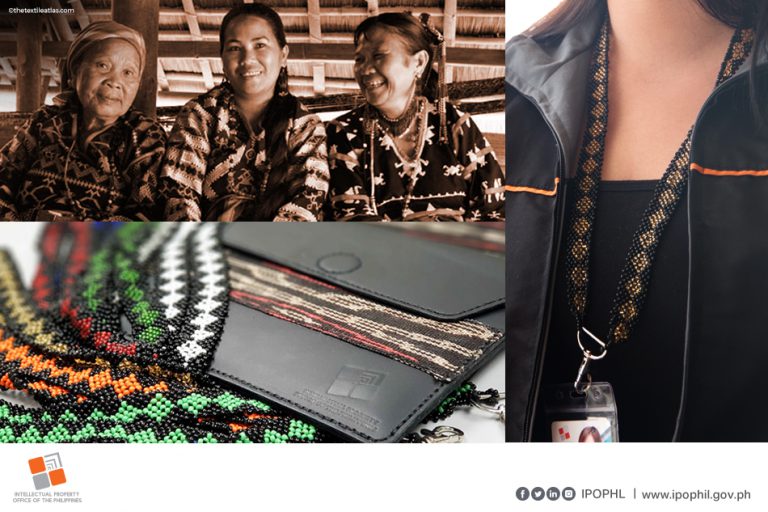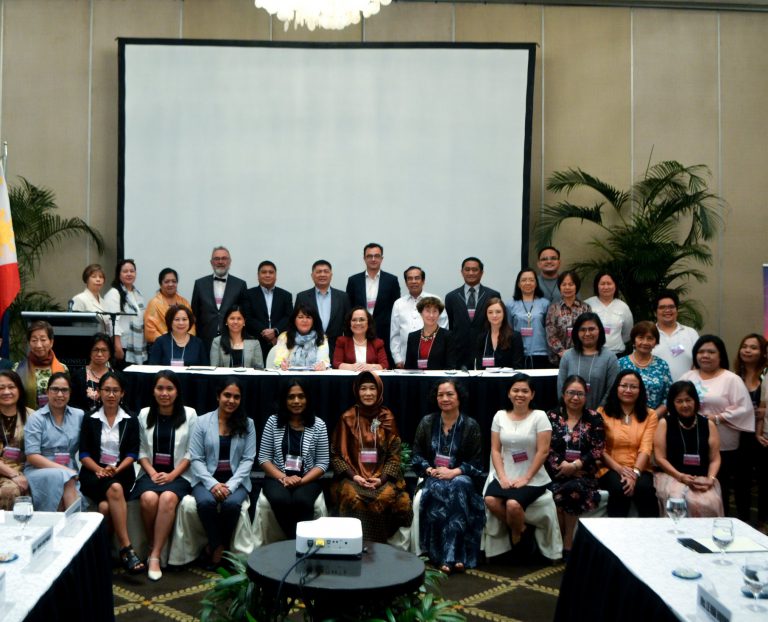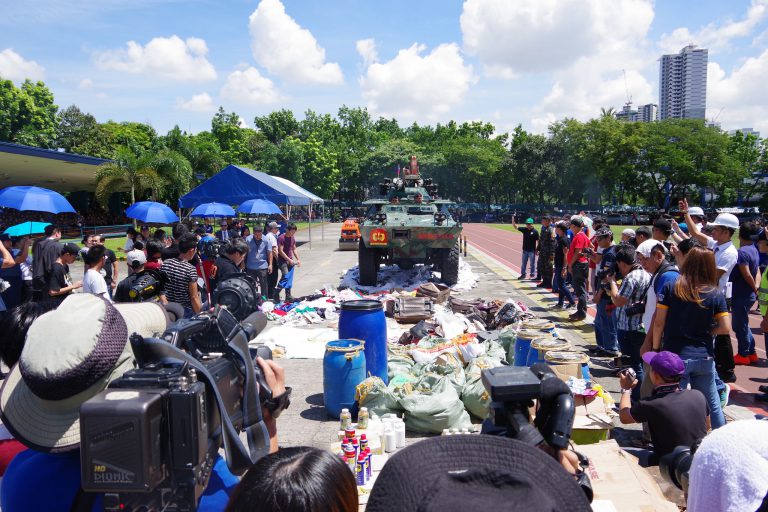
Gov’t, industry bet on IP to revitalize PH textile, fashion
May 3, 2023
Government agencies and an industry group are seeing intellectual property (IP) protection as fundamental for the resurgence of local textiles and in shaping up the fashion industry toward global competitiveness.
Philippine Textile Research Institute (PTRI) Officer-in-Charge Julius Leaño Jr. shared how the agency recently shifted gears to a more aggressive patenting strategy during the pandemic, seeing this as a way to break new grounds in textile innovation.
“When we diversified our textile research and development portfolio at the height of the pandemic, we needed to be brought up to speed with patent search and documentation skills. It was the IPOPHL (IP Office of the Philippines) who was the only one that responded to us in our goal to build internal capacity during the height of the health crisis in 2020,” Leaño said in his speech at the Gawad Yamang Isip Awards and Fashion Night held by IPOPHL last April 26 to celebrate World IP day and the National IP Month.
Today, PTRI’s revamped innovation strategy involves a more robust use of the patent system, starting with a patent search to identify white spaces in the textile innovation space to applying patent grants for its technologies at the earliest possible phase in research and development.
Leaño owes its improved maturity in optimizing the IP system to “numerous training interactions and guidance” IPOPHL has been extending to PTRI in recent years.
Philippine Fashion Coalition (PFC) President Carissa Cruz-Evangelists also lauded IPOPHL for its work in solidifying capacities of universities and colleges to utilize and promote the use of the IP system, which is a core mission of IPOPHL’s Innovation and Technology Support Office (ITSO) Program.
She also commended IPOPHL for making IP more accessible in the region through its IP satellite offices (IPSOs) stationed at the Department of Trade and Industry (DTI) regional offices but determined the need to widen the reach of IP services and assistance.
“We would like to partner more with IP to bring these satellite offices not just in the regional offices of DTI, but to other places nationwide,” Cruz-Evangelista said at the GYI-cum-Fashion Night.
She called on the government and the private sector to sustain the momentum and collaboration to propel the Philippine fashion, wearables and textile industries towards global competitiveness, underscoring the economic gains to be enjoyed by those part of their value chains.
“From soil to skin, [these industries] will provide many jobs — jobs for farmers, weavers, the mills, designers, the sewers and more,” Cruz-Evangelista added.
For its part, the Philippine Fiber Industry Development Authority (PhilFIDA) Officer-in-Charge Executive Director Annray V. Rivera committed the agency to be a partner in implementing the geographical indications (GI) regulations for the fiber craft industries.
Rivera said this commitment expresses PhilFida’s goals “to protect and promote the hard work and passion” that Filipinos put into local fiber crafts and other valuable fiber-based IP products which are sources of both economic strengthening and creative cultural expressions.
Out of over 30 Philippine products vetted as potential GIs, over 30% are textile and wearables. The current GI map counts in Lake Sebu T’nalak, Buhi Weave (Camarines Sur), Liliw Footwear, Lumban Embroidered Barong, Sabutan Weave of Aurora, Aklan Piña Cloth, Bagtason Loom of Antique, Basey Banig of Samar, Tibiao Piña Fiber of Antique and Yakan Cloth of Zamboanga and Basilan.
Restoring PH lead in garments thru IP
Barba hopes the Fashion Night brings to light the possibilities IP protection and enforcement can bring to accelerate the growth of fashion and textile in the country, in tune with the long-term goals to restore the Philippines’ position as a global leader in garments exports in the 90s.
Under the 2020-2029 Garments and Textiles Industry Roadmap of the DTI, government envisions the Philippines to be part of the top 10 global suppliers of garments with a 45.8% annual increase in garment exports by 2029.
“IP can incentivize the creation of innovative processes and products that can revolutionize fashion across the value chain, from fabric production to design, development and distribution. We hope the technologies we integrate will also attract the tech-savvy youth to create a stronger force for this movement,” Barba said.
He added that “through IP, the Philippines could promote the circular economy and make a way for fast fashion and sustainable wear to operate in harmony.”
“We hope the commitment to our farmers, weavers and designers will not end in last week’s fashion night. Rather we hope for it to be a jumpstart in realizing the benefits of IP as we make Philippine fashion brands a global icon for everyday wear and showcase more exceptionally fine pieces by Filipino and Filipina designers to runways the world over,” Barba added.
The successful conduct of the GYI-cum-Fashion Night was made possible by the strong support of IPOPHL’s partners: the National Commission for Culture and the Arts, PTRI, PhilFIDA, Presidential Communications Office, IP Association of the Philippines, the PFC, La Herminia and UnionBank. # # # (Janina Lim, Information Officer III)







